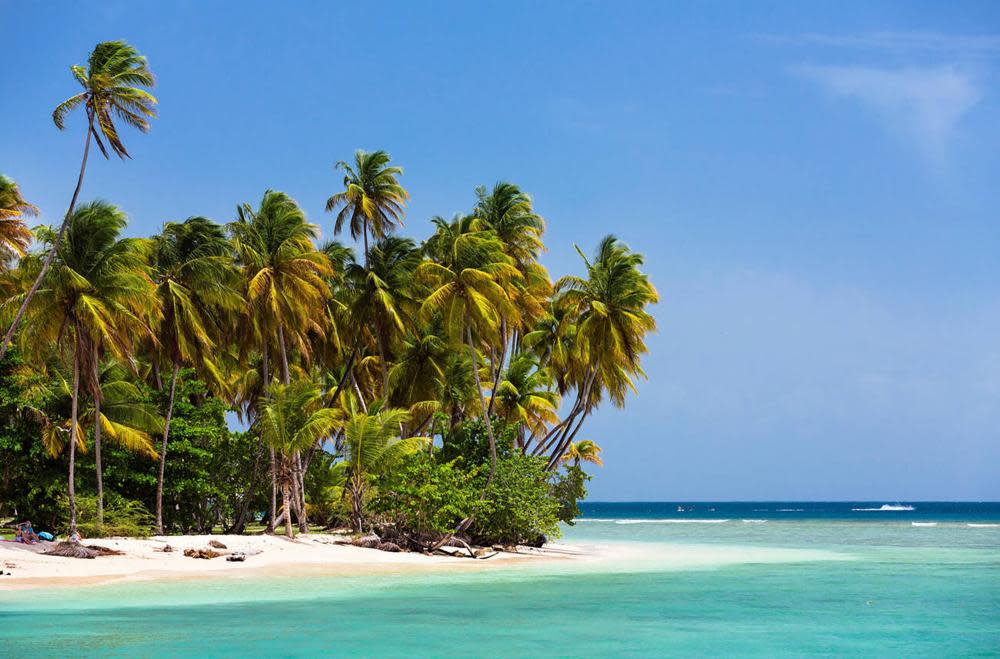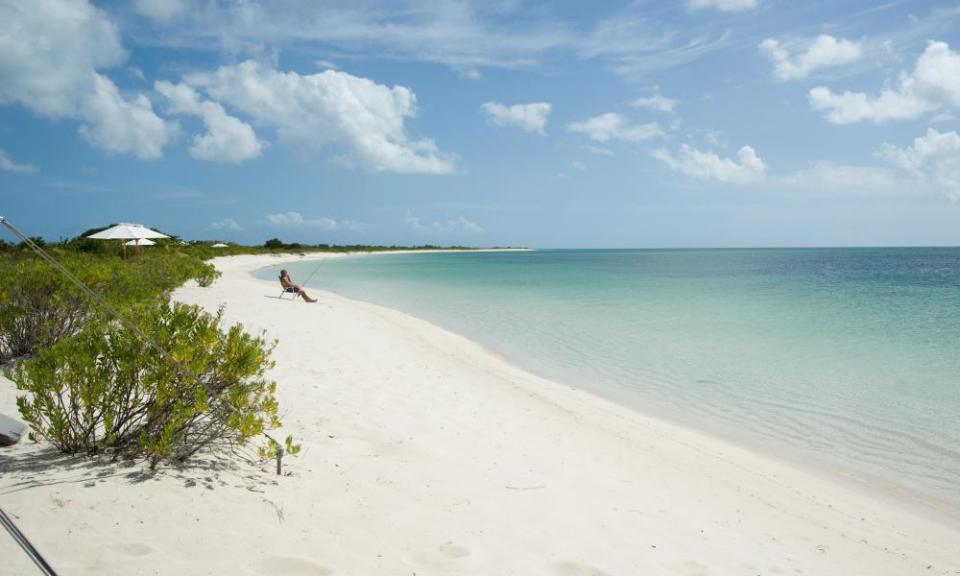What’s the Caribbean without its beaches? But the people are losing access to them

Walk along a Caribbean beach, which may stretch for miles, and your stroll is guaranteed to be cut short by an angry hotel security guard. In recent years, the Caribbean has seen a worrying trend of governments readily selling off assets to foreign corporations and political financiers.
Prime real estate, protected land and valuable resources are being relinquished without consideration for long-term consequences. It raises questions about whether remnants of the colonial mindset still prevail in political ideologies and decision-making.
Countries that sell off their citizens’ birthright can find themselves regretting such decisions. Often corruption scandals tend to accompany these transactions, further eroding public trust in government, while developers’ poor environmental practices surface to tarnish the reputation of the region and irreversibly damage fragile ecosystems. Corruption, unfortunately, goes unnoticed by most local people.
Development in the Caribbean cannot mirror the patterns in Europe or the US. Politicians mistakenly view initiatives through the lens of their favourite travel destinations, such as Miami, New York or London. Skyscrapers, large motorways and vanity projects diverts money from true development priorities, such as education and health, and ignores the unique value and inherent beauty of the Caribbean.
Environmental challenges and the need for sustainability demand careful consideration. Pollution, beach and soil erosion, coral reefs and marine life, over-fishing, pesticides, chemical and industrial waste management, and the aesthetics of the country must be factored into development plans.
Most Caribbean islands are classified as small island developing states, making them particularly vulnerable to the climate crisis, so the responsibility to pursue sustainable development is even more crucial.

However, numerous Caribbean governments engage in “invitational” development, offering incentives and benefits, including tax exemptions, to attract foreign developers. Typically, promises of employment opportunities to stimulate the economy and benefit the local population tend to fall short.
Instead, most of the jobs created are low-skilled positions that offer minimal wages, while the highest-paid management roles are filled by foreign workers. Consequently, the profits generated by these developments are repatriated to tax havens or foreign investors.
The privatisation of beaches and the controversial sale of prime heritage or beachfront sites to developers have become normalised throughout the Caribbean, leaving citizens’ access to public spaces threatened as the region’s natural beauty and cultural birthright is jeopardised.
The privatisation of beaches and the controversial sale of beachfront sites to developers have become normalised throughout the Caribbean
In St Lucia, the government initially turned down an application to sell land adjoining the Pitons, two volcanic peaks, at Anse L’Ivrogne, a Unesco world heritage site. The decision was reversed, and the land sold to Geoffrey Robillard, a senior executive in the Canadian retail chain Dollarama, owned by the billionaire Rossy family.
The construction undertaken by the Canadians outraged St Lucians, at home and abroad, because of its magnitude and location, which blocked public access to the well-loved landmark.
Similar controversies have happened in other Caribbean countries. In 2015, Antigua and Barbuda approved selling a 99-year lease on several public beaches (with the option to renew for another 50 years) to a private developer involving the Australian billionaire James Packer and the actor Robert De Niro, leading to community protests.
In the Bahamas, legislation passed in 2018 allowed for the sale of long leases of Crown Land, including beaches, to foreign investors. Environmentalists and locals voiced their concerns, fearing that the sale could irreparably damage the country’s authentic charm and historical legacy.
Jamaica, too, has experienced protests over plans to change rights of access to a public beach in favour of a foreign hotel developer. Residents argued that the sale would deprive them of access to the beach and harm the environment, but the Jamaican government proceeded, citing the need to attract investment and create jobs.
There has been growing apprehension about the construction of hotels and other developments along the Jamaican coastline, with critics asserting that building projects were eroding beaches and damaging marine habitats.
In 2022, the land adjoining Jamaica’s Bob Marley Beach in Bull Bay, known as a cherished spiritual retreat for the late star, faces a potential sale for the construction of a new hotel. Once again, citizens face the risk of losing a public beach, fishers face losing their livelihoods and the Rastafarian community face land dispossession.

Barbados faced its share of criticism in 2021 when plans emerged of a proposed sale of land on the island’s west coast to the Sandals luxury resort developer, which would have resulted in the privatisation of a popular beach. However, after a public outcry, the government decided to cancel the sale, demonstrating the power of citizen engagement in safeguarding public resources.
In Trinidad and Tobago, there have also been instances where development initiatives have sparked debate. The proposed construction in 2017 of a hotel by Sandals in Tobago was subject to concerns over restricted beach access and potential damage to marine life. The project was abandoned two years later, due to public outrage and what Sandals saw as damage to its brand becoming untenable.
Interestingly, Trinidad and Tobago is often perceived to never protest against anything except for the carnival’s cancellation. Social media has been its placard, so instead of wielding slogans in the sun or risking a beating by an intolerant police force, they wave their concerns on Instagram and TikTok in the coolness and safety of their homes.
The pursuit of economic growth and foreign direct investment should not come at the expense of the Caribbean’s environmental degradation
Trinidad and Tobago have seen developments that have raised eyebrows, but the response from the public has always been muted. For example, the construction of the first Movietowne complex in Port of Spain, built by a local Chinese businessperson in the early 2000s, encroached upon a critically important mangrove forest. However, opposition was almost nonexistent. Similarly, the construction of a waterpark by a local Syrian businessperson in the protected Chaguaramas area, despite affecting beach access, and contributing to environmental pollution and incessant traffic, did not generate significant public outcry. Ironically, local citizens have for decades experienced poor water supplies.
In Tobago, the thought of possible projects at the picture-perfect Pigeon Point Beach sends salivating developers to start enticing politicians with their latest ideas.
In stark contrast to these examples, a recent decision by Anguilla’s government stands out. Late last year, the British overseas territory decided to end cruise tourism as the negative environmental impact outweighed the revenue generated. This decision demonstrates that a more responsible and forward-thinking approach to sustainable development can happen in the region.
Caribbean governments must recognise that the pursuit of economic growth and foreign direct investment should not come at the expense of environmental degradation or their citizens’ wellbeing. Prioritising short-term gains or mimicking the practices of more developed nations are unlikely to end well. Instead, there is a need for astute and sustainable development initiatives that consider the region’s unique environmental challenges. The long-term protection of the Caribbean’s natural resources – beaches, marine life and other fragile ecosystems – should be paramount.
Caribbean governments must promote greater transparency and citizen engagement – local communities’ concerns and aspirations must be heard and factored into decision-making. Efforts to preserve public access to beaches and protect the region’s heritage should be prioritised. Only then can Caribbean nations achieve sustainable and responsible development.

 Yahoo News
Yahoo News 
